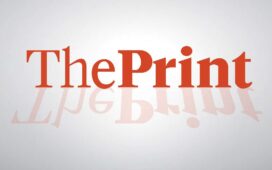Satya Patel of Homebrew, No. 13 on this year’s Midas Seed list, scouted companies like IPO-bound digital bank Chime and payroll unicorn Gusto long before they made it big.
AsChime CEO Chris Britt sat in his San Francisco boardroom in 2015, he had a choice to make. The next-gen banking company was getting ready to introduce a new feature that rounds a transaction up to the nearest dollar amount and automatically transfers the difference to your savings account. Britt was sure it would take the company to the next level, extending its scope to more core banking features beyond rewards. The hitch: Bank of America was threatening to sue if Chime launched it, Britt told Forbes.
The 120-plus-year-old bank had tried to thwart the startup by claiming it had similar patents, said Satya Patel, a partner at the venture firm Homebrew who’d invested $1 million in the then-fledgling Chime. Sitting in the meeting, Patel had some sage guidance for Britt: Do it anyway. “There would be nothing better for a young startup than to be sued by Bank of America,” he recalls telling the founder. “And for us and them to make a ton of noise about it.”
Chime launched the feature, and it proved critical to the startup’s growth in those early years. Bank of America never sued (the bank didn’t respond to a request for comment). “Satya knew when to get into our business and where to push, and where to pull back and let us do our thing,” said Britt. “It’s a fine line.”
The gutsy call exemplifies why Patel has ranked No. 13 on this year’s Midas Seed list, Forbes’ annual ranking of venture capital’s top early stage investors. Patel refers to his broad philosophy as a VC as “bottom up” investing — betting on companies from “boring” industries like HR or banking, and gussying them up with high-tech software. Other prescient bets include Gusto, an online payroll platform last valued at $9.6 billion; Headway, a mental health app worth $2.3 billion; and Plaid, which lets people connect apps to bank accounts, acquired by Visa in 2020 for $5.3 billion. Now Chime is headed to its own exit. The company, last valued at $25 billion, filed its IPO prospectus earlier this month, with 2024 revenue of $1.7 billion.
Many of Patel’s bets have benefitted from his early guidance as they expanded. For Shield, a $5 billion-valued drone maker, Patel’s big stamp on the company was in helping it to grow beyond the seed stage. “Satya just, over and over again, put himself out there, put his reputation on the line to introduce us to top quality investors,” said CEO Ryan Tseng. “I’ve always felt like he’s had my back.” (Challenges have arisen, like when the company’s V-BAT drone was involved in an accident that left a U.S. service member’s fingers partially severed, Forbes reported.)
“It gave me an early appreciation for science and what science can enable, both the positive and potentially the negative.”
When it comes to defense tech, Patel has bona fides as well. His mom was a banker, and his dad was an engineer for Raytheon, working at a nuclear test site. As a child growing up in suburban Las Vegas, far from the din of the Strip, Patel knew little of what his dad did because of his father’s security clearance. He finally got a closeup look during the summer after his freshman year of college at the University of Pennsylvania, when he took an internship at Raytheon himself and worked at the same site. “It gave me an early appreciation for science and what science can enable, both the positive and potentially the negative,” Patel said.
Patel’s venture career began right after the internet went mainstream. In 1997, he took a job at GeoCapital Partners in New York City, a firm started in 1984, where his job was to call up founders all day long, hunting for the next Amazon or Netscape. But the gig taught him the virtues of pounding the pavement to find promising new talent. “Most companies didn’t have websites,” he said. “I think I subscribed to 200 trades to find companies. I’d walk conference floors.”
But after a few years in venture, in 2003 Patel joined Google, working on the company’s AdSense team, a key element of the company’s juggernaut digital ad operation. Eight years later, he joined Twitter as a vice president of product. But he quickly grew bored as the company slowed its product development roadmap in preparation for its 2012 IPO. So he decided to return to his venture roots.
While at Google, Patel had met Hunter Walk, a product manager and a member of the founding team at Linden Lab, the creators of Second Life. The two started at the tech giant the same year and sat “three-to-five feet” away from each other, Walk said. They became fast friends, and in 2013 cofounded Homebrew after deciding to leave big tech. The VC firm, named after the Homebrew Computer Club, a 1960s and 70s enthusiast club in Menlo Park, California, that counted Apple’s Steve Jobs and Steve Wozniak as its members, writes seed-stage checks of typically $1 to $3 million. The two partners are still so close that they often share a room when they travel. “Now it’s our beds that are three to five feet from each other,” Walk says.
While Walk made a name for himself as a product leader and investor by posting actively on Twitter (before its transformation to X), Patel’s social media presence is almost non-existent. The dynamic extends to their approaches to investing as well. Patel will often be the partner with fewer words, delivering hard truths with no cheerleading. Walk describes himself as a storyteller. “In meetings, I’ll tell him, ‘Satya, I’m going to take five minutes that we don’t have to give this answer. Can you give the better answer in 30 seconds?’”
Outside of Homebrew, Patel cofounded Screendoor, a fund that invests in and supports first-time VC managers, along with Walk and other investors including Cowboy Ventures’ Aileen Lee and First Round Capital’s Rob Hayes. The goal is to back VCs that Screendoor believes could bring fresh perspectives and new ideas to venture capital by committing to contribute at least 10% when VC raises their own fund for the first time.
For Britt, who called Patel one of the best, “if not the best,” seed investors in the world, Patel’s strength is in his experience as both an investor and product executive, balancing between the details and big picture. “He understands the role of an early stage investor,” he said. “Sometimes it’s more art than science.”
Additional reporting by Stephen Pastis.
Forbes



